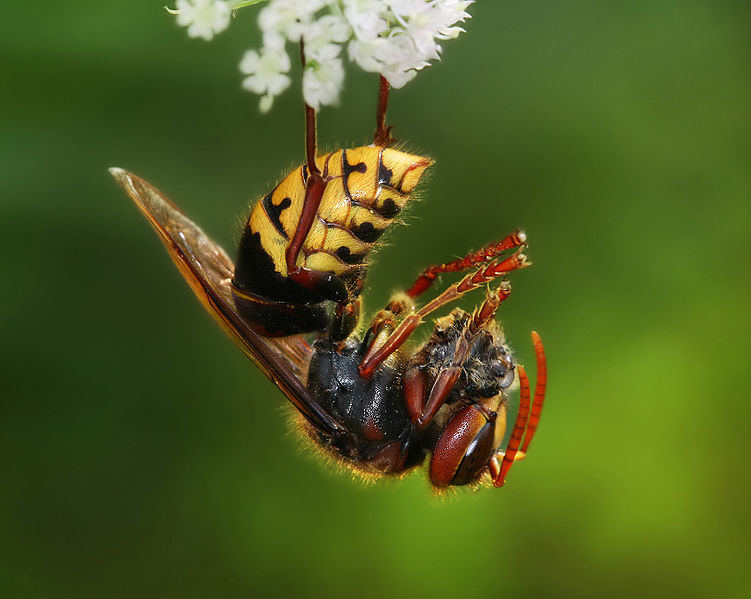Orchids living on Hainan Island in China have evolved to smell like upset bees.
That might sound bizarre except this particular whiff attracts hornets that come looking for a bee to take away and feed to their growing young - but instead they bumble from one deceptive orchid to another, unwittingly pollinating them.
 Never trust an orchid. In total, around one third of all the 30,000 orchids species attract pollinating insects without rewarding them with pollen or nectar. Most of them mimic the scent of other flowers that do have nectar and pollen, or they smell like potential mates, so insects come along and try to have sex with them.
Never trust an orchid. In total, around one third of all the 30,000 orchids species attract pollinating insects without rewarding them with pollen or nectar. Most of them mimic the scent of other flowers that do have nectar and pollen, or they smell like potential mates, so insects come along and try to have sex with them.
This study in the journal current biology by a team from the University of Ulm in Germany has revealed for the first time that an orchid tricks pollinators into thinking they are going to find food.
The researchers spent over 120 hours watching the orchid (Dendrobium sinense) in the wild and saw that it was mostly hornets that visited them - these researchers were the first to confirm that hornets are the main pollinators for these particular orchids. But instead of landing on the flowers and pausing for a moment as most pollinators do, they pounced on the red centre of the blooms - much like their behaviour when they attack prey.
Then, in a flight cage, hornets were just as likely to visit the orchids as an odourless European honeybee dummies injected with an extract of the flower, while ignoring dummy bees that hadn't had a spritz of flower scent.
To discover what chemical was attracting the hornets, the team then analysed the chemical makeup of the flower scent and discovered a volatile chemical called 11-eicosen-1-ol, which is the exact same compound produced by Asian and European honeybees when they are alarmed.
When hornets in the lab were given the choice of visiting an intact flower or a synthetic mix of the main chemicals identified in the scent, they had not real preference for either. And since hornets are known to prey on honeybees, it makes perfect sense that they fly to the orchids thinking they are going to find food.
It's amazing what plants get up to, co-opting the services of animals in the most ingenious ways.
- Previous Heat-treating tools
- Next Bad news for malaria










Comments
Add a comment